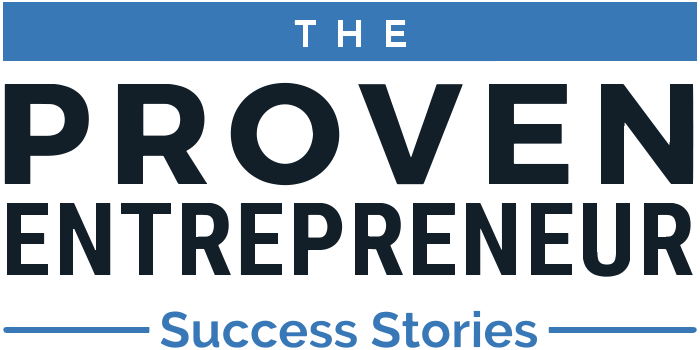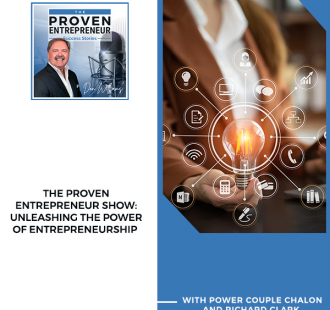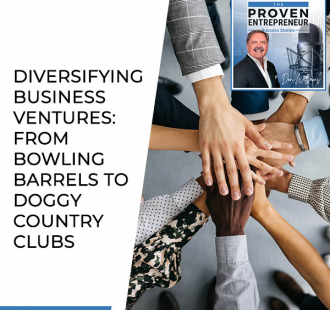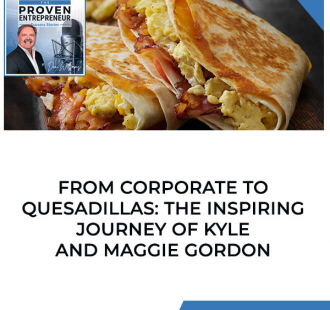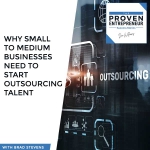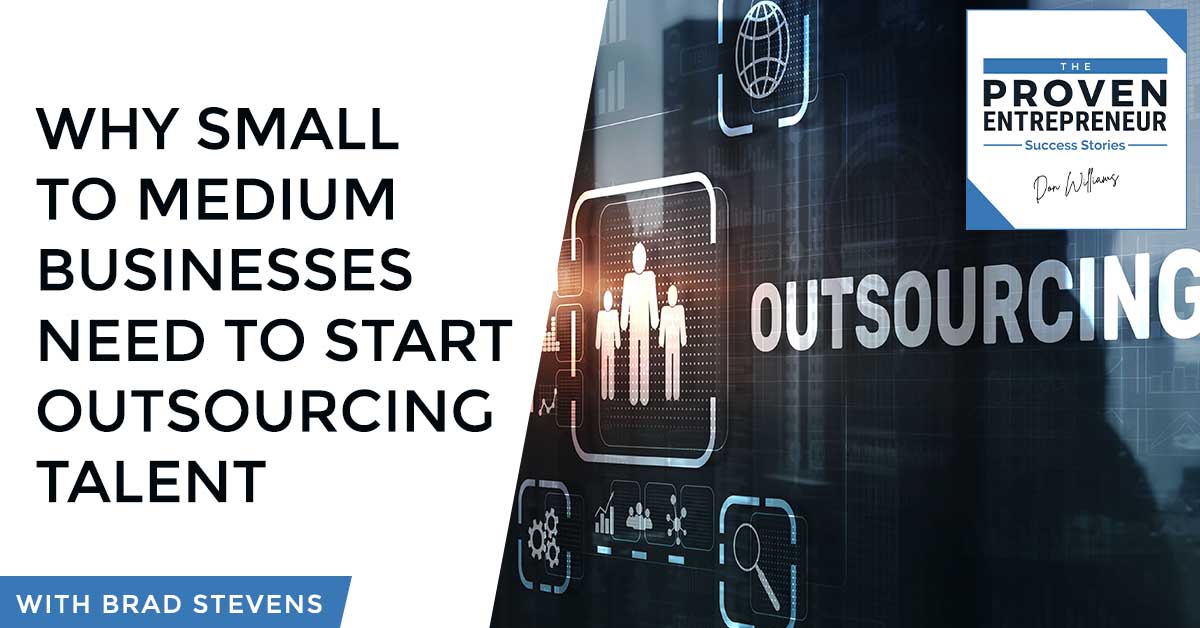
If your business is struggling, outsourcing talent can really save it. It’s low-cost and you get to recruit people from around the world. What your business is going to do is secondary. It’s more important to get the best people for the job, whether they’re your neighbor or across the globe. Develop this gig economy and start outsourcing talent. Join Don Williams as he gets Brad Stevens to share how outsourcing saved his company. Brad is the CEO of Outsource Access where he provides full-time vetted and trained virtual staff from the Philippines to business owners all over the world. Listen to his story from the disaster of his teeth whitening company to discovering Jim Collins. Learn how to outsource properly to really grow your business.
For information on how to work with Don visit Work With Don Williams
You can also reach out to Don Williams at https://donwilliamsglobal.com
Please join Don and his businesses in support of St. Jude’s Children Research Hospital in its Mission to cure Childhood Cancers. You can donate to St. Jude at stjude.org/donate
—
Watch the episode here
Listen to the podcast here
Why Small To Medium Businesses Need To Start Outsourcing Talent With Brad Stevens
I have my good friend, a phenomenal entrepreneur from Atlanta, Georgia, Brad Stevens, on the show. Welcome, Brad.
Don, it’s such a pleasure to be here with you. I’m excited about our time together.
It’s my pleasure. I saw you when we were in New Orleans. It used to be that a good day to be in New Orleans was Fat Tuesday. We were over there on the wrong day. Let’s jump right into it. I’m going to take you back to young Brad, five years old through high school. In the household where you were raised, mom and dad or grandparents or whoever that was, did you have an adult who set an entrepreneurial example for you as a young child?
I’m one of those kids that grew up in an entrepreneurial environment. They had a whiteboard permanently hanging over the fireplace in our house where things were always flowing around. Whether I wanted it to or not, blessing or curse, I was destined for this path. My mom’s grandfather started a business in the manufacturing space back before Home Depots and Lowe’s existed, creating doors and aluminum windows. He manufactured them in Florida.
That was the genesis of the entrepreneurial path from my recollection. My mom’s dad took that over, and my dad started working for the firm. He took a whole other direction in manufacturing. This was back when the movie industry used to be a thing. We used to go rent movies back in the day, the old Blockbuster. I think there’s still one left on the planet.
My dad helped grow a division and manufactured a lot of the display units inside the video rental stores. My uncle helped create some of the first rental software in the movie rental space. It is an interesting journey. I remember at a young age, 8 or 10, I was sitting there on a desk computer helping to type in movie inventory because my mom ran a local video store. They could practice using all their products and so forth.
I was going around it quite a bit and I also got to see the other side of entrepreneurship. Unfortunately for that business, we know what happened to that industry. It went completely flipped side. My dad drove me to school every morning. I’m growing up around entrepreneurial talk. In third grade, I went to a small private school. I would always ask him questions about the business.
I was in love with Micro Machines. Remember those tiny little cars back in the day. The guy who spoke fast in the commercials. I asked him for that for my birthday and Christmas all the time. I collected this big wad of Micro Machines. My parents enjoyed Crown Royal. Those little purple velvet bags, that’s what I kept all my Micro Machines in.
You have to earn your entrepreneurial chops through years of a lot of blood, sweat, and tears. Click To TweetWhen I was a third-grade Brad, I went into a Christian school and I would carry these things in my Crown Royal bags. I decided to start a Micro Machine rental business. I was giving a talk I’m doing where I’m sharing my journey and I had some visuals. My mom still has the folder. I created a credit card for myself. I had a VP of Marketing and a VP of Sales. I had frequent renter cards. I had a newsletter that I typed up on an old typewriter. It is pretty funny to look at, but my wheels are spinning at an early age.
Being in a little Christian school, I didn’t want to create too much turbulence. I only lasted for about six months with my enterprise there, but it started that journey for me. I continued through high school. I started a tutoring company in high school where I went to all the middle school counselors. I said, “Who are the kids that are either struggling in math or need to skip a grade and want to get ahead. Give me the list of those folks and/or connect me to them or make me a resource.” I created a whole tutoring curriculum. I help tutor kids and help them through the summers, particularly middle school, to get caught up or to get ahead if they want to skip.
In high school, I was a part of the entrepreneurial class where we launched a whole trading company with a set of schools in Scotland in the UK. We would find products in the US. Beanie Babies were all the rage back in the day. That’s one of the things they liked and wanted us to ship over. They had Pet Rocks, believe it or not. We’re making a comeback. We imported that in some unique gold jewelry from Scotland. I got a chance to travel over there and tour. Those are the initial entrepreneurial experiences that I knew I was going to head down this path.
It sounds to me like it was unavoidable. There is no way for you to resist the gravitational pull of entrepreneurship in your household. Let me ask about your first job. Maybe your first job was entrepreneurial. Maybe it was renting the Micro Machines. What did you do that was your first financial compensation? Was that a job? Was that selling something of your own?
We have a price list. It’s funny. I have to show it to you some time. I took pictures of this whole folder system that I had in third grade. We rented them for $0.01 to $0.02 a night. If you want a low-level Micro Machines, it was $0.01 a night for rental. We had a whole rental sheet for check-in and check-out. People rented them. If you wanted the higher quality ones, it was $0.02 to $0.05.
I also asked for all the little aircraft carriers and the little gas stations. Those were the units that you could take home to interact with the Micro Machines. We rented those for $0.50 a night or something. To be honest, my first income was from that adventure at that age, but the tutoring company was also probably more substantial revenue-wise. I would charge $20 an hour to do the rental. It was great cash during the summer for a high school kid. It felt like it was a zillion dollar back in the day.
We’re going to leave young Brad with his multiple entrepreneurial adventures. At eighteen, did you go to university, backpack across Africa or join the Merchant Marines? What’s your story?
That sounds like it would be fun. That’s not what I did, but that sounds fantastic. Throughout high school and so forth, I had my entrepreneur ventures but I was big into academics. I love school. Still to this day, I love learning. I was pretty big in doing athletics. I had parents that encouraged a well-rounded aspect of things. Funny enough, I did Spanish poetry competitions, which was a random fun fact I did in high school. I fell in love with the Spanish language. I learned Spanish and did this poetry. It is a random tangent.

In college, I ended up getting into Harvard University, and I got into the Wharton Business School at the University of Pennsylvania. We’re trying to solve what my path was going to be. I got in a couple of other places. I was honored to have the opportunity. I knew I wanted to do business at some point in my career. I went back and forth. At Harvard, I realized they don’t have an undergraduate Business program. All they have is Economics.
It was a phenomenal experience. You get accepted. You can’t turn it down. It’s a unique opportunity. I ended up going to Harvard in my freshman year. I had a wonderful experience. I love all the Liberal Arts education. I went to some Business basics, and Economics didn’t quite scratch that itch from an education standpoint. In parallel to that, our family business situation had some challenges and things that were going on. I had spent a lot of time talking back on the whole family front. It went to an unfortunate situation.
It was an interesting time in my life during freshman year. I wasn’t loving the content education. I was cleaning out my closet at Harvard and I found the paperwork for Wharton, which was my second choice to go to, and a week was the transfer date. I’ll make this move. I don’t think anybody ever leaves Harvard. There is a shortlist of people that they don’t ever talk to again in life that do that at Harvard.
A long list of people who want to get into and can’t, and a shortlist of people who get in and leave.
I got proud of that at a young age. I was like, “What’s best for me? What do I want? What do I want to pursue?” UPenn was the only Ivy school that in my understanding had undergraduate business education opportunities, as well as Liberal Arts. Harvard had. You could cross-register with MIT and fabricate an undergrad education experience, but it was too much of a challenge. I filled out the paperwork. I ended up getting in and transferred down to the University of Pennsylvania. I went to Wharton undergrad and finished up there with majors in Finance and Marketing and a bunch of Liberal Arts classes that I took and enjoyed. I finished up there in Philadelphia and I was going to graduate.
It was back in 2002 when I graduated. Back then tech was all the rage, and I ended up getting an offer to go work for an investment bank called Robertson Stephens. I knew I wanted to get back home. All my family was down in Atlanta and the surrounding area. I was ready to get back down to some warm weather. As an investment bank opportunity, I made an investment making money in Atlanta. I was pretty good at 21 years old. Two weeks before we were supposed to start, they went under. I was all excited. I had rented a place with another young single guy in Atlanta. We were both going to be single, making good money, and living in the Buckhead scene. Robertson Stephens took E-Trade public. They were big back in the tech sector, but I think the parent county was FleetBoston at that time, but they shut them down.
It was a big surprise. I was sitting there and was about to start. The cool part is I got to keep my signing bonus. I got three months of severance pay and never worked a day for the company. I was like, “I’m making a career out of this. I’ll go find the next failing corporation and walk away with $20,000.” I got around there and ended up having $18,000 to $20,000. It was one of those crossroads in life. I had some other offers with some consulting firms and others that I could have gone to, but my great uncle at the time had shared with me about a business opportunity to maybe go down the entrepreneurial path.
I moved back in with my parents at 21 to 22 years old. I gave up the apartment in Buckhead. I hunkered down and decided to launch this company with my great uncle at the time. We helped low-income senior citizens mainly to learn how to qualify for free medication. He was down in Alabama. I was in Atlanta. We had a mail-order pharmacy component if we couldn’t get them free medications through the patient assistance programs.
Crisis breeds opportunity. Click To TweetWe licensed a software that helped us in doctor’s offices to rapidly make the process happen for seniors that didn’t know how to do the paperwork. We get them free medications from these patient assistance programs if they didn’t know how to do it. If they didn’t qualify for that, we had a mail-order pharmacy relationship that would get them that at a low cost. At a young age, I found myself employees and two offices back in Atlanta and Alabama. I travel back and forth. That’s what kicked things off on the entrepreneurial path, and I haven’t looked back. Since then, I’ve built other companies in different industries. That was the launching point.
I didn’t know that the patient assistance program is part of your background. I have a good friend here in the Dallas Fort Worth area and that was their business also. It is a unique business for many people who know about that.
Did they work with the software? We worked with a company in Texas that wrote software that would automate the process of filling out the applications. It would API interface with all the drug companies and bring it in. We partnered with them to fill that out. We used that software. It is a Texas company. It is funny you mentioned that.
I think we’re talking about the same person, which proves that it is a small world.
I haven’t heard that name in a long time.
You have this long and storied entrepreneurial career. Let’s talk about what you’re doing now. What’s your main show? What’s your main gig? What are you doing?
In the last several years, there had been some interesting stairsteps. One thing naturally led to another from that business. I had a partner. He and I ended up parting ways. I love the idea of recurring revenue. I ended up launching a company in the nutritional product space with another partner. That got us into the spa and the beauty industry. We saw there’s an opportunity to launch in the teeth whitening space. He and I ended up launching a business after that because we had all these relationships in the spa and the beauty industry with this nutritional product that we had. I learned also from that. We got that business up to a decent size, but getting professionals to sell nutritional products at the level of doctors and selling versus mass retail which was challenging.
I learned how to create a product from scratch and get labeling, manufacturing supply chain, and distribution facilities. I’m learning the whole game when it comes to product and cashflow management. When you’re dealing with capital-intensive products and businesses versus service businesses, it is a different ballgame. Being in the beauty industry, we saw that there was an opportunity in teeth whitening. There weren’t a lot of teeth whitening products being sold in the beauty space. It was an opportunity for us to create a product line. We launched a business where we ended up with about 10,000 accounts in about eighteen countries.

We had a dental division. We sold professional teeth whitening products for administration onsite and also for retail take home, the dental industry, and also in the beauty industry. That was a product-based business. We have supply chains all over Europe and Asia and distribution and so forth. I referenced that because earning your entrepreneurial chops through the years, there are a lot of blood, sweat and tears. Being in capital-intensive businesses, there are lots of supply chains. You’ve got multiple things that can impact your costs.
I would never trade it. It’s not a business I’m excited to go rushing back into at some point. Learning how to manage finances, grow and build a company and a team, you’re having hard outbound calling, sales, infrastructure, and dealing with supply chain built my baseline. I can hopefully avoid banging my head against a few walls on my next business. That teeth whitening business, long story short, we ended up having a product fiasco that happened with one of our products. We manufactured tens of thousands of units of this teeth whitening pen that had lip gloss and teeth whitening gel on the other side. It was called our Chic Flic Pen. It was a double-sided pen.
It’s a great success. People loved it. It got little LED lights on it. We worked with a manufacturer in Taiwan that did manufacturing for super high-end cosmetic brands. One of the suppliers down the way on the next thousands of units that we ordered, and we had been on the cover of US Weekly Magazine with celebrities using it. We were thinking about creating a separate division just for this one product.
One of the suppliers changed the bio-adhesive gel that held the little brush onto the stem for the part that put the teeth whitening gel in. The problem is they would manufacture it in Taiwan, ship it to our teeth whitening gel manufacturer in California, and they would fill the teeth whitening gel side of it. It would happen immediately. We didn’t know, but after about 45 days or two months, it would start reacting. It reacts to hydrogen peroxide and creates gas in it. We send 10,000 grenades all over the world.
One of two things would happen. It would crack on the shelf and ooze in the package or it would crack in a woman’s purse and ooze there, or it would build up enough gas and not quite crack, but when you open it, it shoots across the room at a speed at which it would break the glass. It was around the time that I joined EO. You can imagine my forum was valuable for me. I’ve got products blowing up all over the world now but I thought I was going to be successful.
Because we had seen such success with it, we’re like, “We’re going to send this to all the beauty bloggers and major publications.” That was the batch that we sent to all of those people as well. We doubled down on our screw-up and got it all in the wrong hands of thought leaders. Long story short, crisis breeds opportunity. A lot of people had seen it. That was my COVID disaster at the time. Cash got tight and lean. Fortunately, I did not get any lawsuits that happened from it.
I had to get lean and make cash stretch. That’s when I learned about this whole gig economy world, outsourcing and leveraging platforms like Elance and oDesk back in the day before they merged and became Upwork. I read Tim’s 4-Hours Workweek. I was like, “How can I use this to save this business?” I’m learning how to do that. We built a team all over the world doing gig economy stuff and low-cost outsourcing stuff. We ended up saving the business at the time and ended up selling to our manufacturer.
I had this knowledge base of how to outsource. It was my forum in EO. They said, “Brad, did this come by to you about all this outsourcing and gig economy stuff? On your next business, you ought to do this.” For several years, I did a lot of speaking and consulting on it. I would work with companies, go in and help them figure out where all their constraint points are. I would recommend them to other companies that I found and embedded. I recommend them and be a broker.
When you have people that wake up every day to do what they love, you'll get 5x the ROI. Click To TweetAfter several years and in 2019, people were like, “Brad, why don’t you launch your own operation?” I started using some staff in the Philippines. I’ve seen incredible competency there, intelligence and performance. The first VA that I hired at 23 is now my chief operating officer with over 400 people. I had launched our own operation called Outsource Access. Everything I learned in outsourcing and companies I had worked with and seen challenges people had, I wanted to build a company that addressed all those issues and how we built this operation.
I set up a corporation there and hired everybody’s full-time staff. Now we provide full-time vetted train virtual staff from the Philippines to business owners all over the world and in all kinds of different industries. I still do a lot of speaking for business organizations. I’ve got a chance to speak through several years’ chapters, which has been a great experience sharing and educating. I love the industry and the impact we’re doing with our staff and with the people that we’re impacting as clients.
People’s initial thought about offshore outsourcing is, “We’re going to save a ton of money.” In my experience, there is some of that, but what most people experience is the quality of help that I’m getting is shockingly good. They go for the perceived financial benefit, but what they typically realize is the quality of work and the quality of the individual is unbelievably good in certain locations. The Philippines is one of them.
Different countries are good for different aspects depending on what you’re trying to do. That’s what I’ve found as well. Originally, it was the economic side of things. Our US currency can stretch a long way in some of these other countries. I find some people that are incredible. There is one misnomer that I share a lot with people when they see our business, Outsource Access. We launched in 2019 with about 400 people. Since then, I’m seeing a lot of different companies and different industries. We work in all kinds of different industries. They’re like, “You’re shipping jobs overseas.”
The vast majority of what I see in myself included is it’s either a small to medium businesses that can’t afford a full-time person. They make their existing staff wear nineteen more hats and work 90 hours a week because they can’t afford it. This provides a staffing gap for them to be able to hire someone full-time for far less. They get the support that they need and don’t overwork themselves with existing employees.
The other thing is plugging into existing staff. In this day and age, if you’ve got a W-2 employee that’s a good learner, good contributor and strategic thinker, you don’t want to lose that person. You want them to focus every day on the highest and best use of their time. You flank that person with an outsourced resource to get things off their table that isn’t their best use of time. Now you’re getting 5X the ROI on that person because you’re getting them focused not only on what their best use is but what they love doing. When people wake up every day to do what they love doing and get the stuff off their plate, it makes a big impact.
The Fortune 100 and Fortune 500 have been in global operations for years. You look at the life and health insurance industry, for example, which people traditionally see as very American and US-based, but a big percentage of those codes on actuarial tables were done in India starting back 30, 40, 50 years ago and so. An entrepreneurial CEO has two jobs. One is to cast the vision for what they want the company to be, and how they want it to act and perform. That is job one. Job two is to find the best people in the world to help make that vision get done and execute that vision. That’s it.
The CEO should get out of the weeds, quit turning on the light, sweep the floor, and do whatever they’re doing. Cast the vision and find the best people on the planet. It’s a big planet. The US is a big place, but we’ve got 340 million people here and 7 billion people on the planet. We’re rapidly moving towards a more global economy, and that’s inevitable. I love that business.

To shift into the highest and best use. No doubt. It’s a big shift. There’s a reason why only 4% to 5% of businesses get over $1 million. There’s a talk I gave at the opening of an entrepreneurial center in Atlanta. I was the first speaker for them. I show them a slide of the growth ceiling. I said, “This is the reason why only 4% to 5% get to $1 million because they get here and hammer against this gross ceiling. They won’t get out of their own way and deflect.” A lot of people don’t have the ability to get on the other side of that. The E-Myth book, which a lot of people have heard of, I have everybody go reread that nine times if you’re ever going to truly get to that next place to not be in it but working on it.
I can’t agree enough with you about “first who, then what.” That’s the reason why a lot of the philosophies, whether it’s EOS and it’s the right people, right seats. I’m a huge Jim Collins fan. That’s the first thing Jim Collins stuff. It’s the “first who, then what.” He studied all those companies in Good to Great. The number one thing was to go get the best people in the world. In what you’re going to do, the what is secondary. It’s first who. It may be next door. It may be in another country. We are in a globalized economy now. You can mix and match those resources to get the most optimized team to help you scale and grow.
If you get the right who, they’ll bring the what. You won’t have to get too involved in that if you get the right who. It is important. Thinking back on your career. You’ve already shared a couple of curveballs and things that didn’t go exactly according to plan. What I’m looking for now is a hard lesson, something that happened other than the grenade cosmetic. Something that happened that at the time it was like, “This is painful.” In retrospect, looking back on it now, it appears that it might have been for your ultimate good and sped you along your way. Do you have a hard lesson that you can share with us that you haven’t already?
There was a big one that always comes to mind. There are all kinds of micro painful lessons along the way in the journey, but I was in a complete down in the dumps situation that was very challenging. I’ll share another fun thing that was occurring similarly at the same time. As I mentioned in the teeth whitening business, we had a dental division and a beauty division. We started in the beauty space. We provided teeth whitening products and lower strength products in that space. On the dental side, we had two different brands.
Probably through getting that launched, we ended up having the dental community feeling threatened by teeth whitening being offered in the beauty space. The dental offices started suing spas and salons offering teeth whitening. Here we are selling to both of these people, and all the spas and salons we had sold whitening products to in kits started issuing chargebacks. As a business owner, you see deposits in your merchant account and all of a sudden, you see a massive amount taken out of your account. Interestingly, that was happening concurrently with some of those other challenges that occurred.
It was a situation where we felt it wasn’t valid. The dentists were concerned as far as what their claims were because the products and what was happening were much lower strength. It wasn’t being administered or managed by staff at the spas and salons. It is low strength. It is the same strength of products you could buy like Crest White Strips at the pharmacy. In some of the litigation that’s happening around it, one of the dentists was asked, “You’re saying if I go to CVS and I go buy teeth whitening strips. I ask one of the sales associates to help me get clarification on how they apply to my teeth. Not opening it but just saying, ‘How does this work? I just apply it on my teeth?’ Is that practicing dentistry without a license?” Absolutely. I was like, “This is what we’re dealing with here.”
Long story short, I’m selling to both of these different groups under different brands with one suing the other, and having to sell to both of them and manage and so forth. I ended up having to partner with some of our competitors in the industry. We created a national legal team and alliance. We hired a group out of DC. We hired an attorney to help go advocate and create a national advocacy group for the teeth whitening space for the beauty industry. Ultimately, we had to choose a state to file a legal suit in, and it would be North Carolina. We ended up winning the lawsuit on the beauty side. I found out that it was more of a restraint of trade issue. It had nothing to do with practicing dentistry without a license, and the court case was ultimately settled.
It’s learning and building grit as an entrepreneur and having to build your thick skin. My business now is the largest and most successful that I’ve had, but it’s based on having the grit and dealing with them. You’re sitting there and feel like you’re getting mortar fire. I got teeth whitening pens blowing up. I got one customer suing me and one customer buying from me, and having to launch this national advocacy group. That level of grit pushed me. I learned a lot growing up in a family business nature and having experienced that business deal with some massive struggles and observing it.
What you're going to do is secondary. It's more important to get the best people for your business. Click To TweetWe ended up getting on the other side of that. It translated into a lot of business opportunities. We were able to celebrate that win. That made sense. Overall, that experience coupled with the others, I attribute that to what it means to hunker down and get in low gear, as the Southerners talk about it sometimes. What it takes getting to low gear and ride out that stuff that prepares you to navigate.
I always joke around entrepreneurs. There’s nothing that can happen in my life that fazes me. We got a six-year-old and a two-year-old. Our son is on the roof bouncing around at two years old or something. It doesn’t faze me. My wife is losing her mind and I’m like, “This is a standard operating procedure for an entrepreneur like a two-year-old on the roof happens regularly.”
Thank you for sharing that. I’ll share back that typically my failings in my own success story were large, and you can see them on the horizon. I typically didn’t make the little mistakes. The ones I did had a big plume of dust, ash and fire. I’m looking for a work speed moment. Things are going pretty good in one of your businesses. All of a sudden, you implement a strategy, you make a new hire, but something happens that you get that hockey stick of growth. It’s like, “Things are going pretty good, but now things are going amazing.” Do you have a warp speed moment?
Fortunately, the business that we’re in has been pretty crazy. We’re right at 400 people in a few years. We started with a handful. I started initially as a consulting practice and educating. I hired a couple of VAs in the Philippines. Americanize culture completely. English is their second language. It is why I ended up choosing that. I had a couple that I was working with to help my speaking and consulting business.
I’m realizing what the capabilities were and deciding, “This is what small to medium business owners need. They don’t need a person to do a website. They need someone that’s going to work side by side in their business and supporting them.” I realized that with my first VA. I hired her at 23 years old. I almost didn’t hire her because she didn’t have all of the experience that I needed and all the technology. This goes back to the, “first who, then what,” which is a great case study in it.
I had this woman helping me when I was going to hire my first VA in the Philippines. She showed me her resume and she was 23. She didn’t know Infusionsoft, which is the technology we were using. She hadn’t had a lot of years of experience in being a VA. This woman said, “Brad, I think you ought to hire her. She’s smart. She’s hungry to learn. She rapidly gets things.” I was like, “Alright, I will try.” I started working with this young woman. She didn’t know Infusionsoft. She went and found a place in the Philippines doing international training. She went and got certified and got a certificate. She sent me a picture of it the next day. She was like, “I heard that I need to know this.” I didn’t ask her to do it. She didn’t ask me even to pay her to get it done. She said, “This is what I need to do. What’s next?”
She got certified in project management. She got certified in Lean Six Sigma. I was like, “Is that a unicorn over here in the Philippines? They’re all this driven.” I hired her boyfriend. He was my second staff who came on board. I saw the same experience and then the third and fourth. I almost screwed up if I didn’t hire the woman.
Fast forward several years later, she’s my chief operating officer and helped me build an entire manager team infrastructure. We have 50, 60 managers at this point. She has shown me the ability. One of John Maxwell’s 21 Irrefutable Laws of Leadership is the Law of The Lid. Can you raise your lid? Bringing her on board and treating her well goes back to culture. I was fanatical about treating and caring. It has been my natural nature to a fault sometimes in the past, but it’s showing her that I cared for her coupled with her natural ability.

Once we decided to launch, I flew over there. She, I and our team toured a bunch of facilities. Before we knew it, it started ramping. I had built a lot of authority and education from speaking. I had a lot of people that kept asking me, “When are you going to launch this thing?” I had a good burgeoning demand sitting there when we announced we were launching it. We got up to 80 staff in our first 3 or 4 months, and it kept ramping from there.
One of the key things we’ve implemented that has been critical is we brought in a lot of people who are familiar with EOS, Entrepreneurial Operating System. It has been phenomenal for our growth. We hired an EO Philippines member. A big shout out to the Entrepreneurs Organization, EO. They have been a big part of my journey, education and learning.
We went to lunch over there. I’m like, “I need somebody to help me.” I ended up bringing her on. We started doing EOS back in ’20. That framework galvanized our senior management team and our goal development execution process. One of the things she had us do was reread Jim Collins’ Good to Great. It is the one that talks about Circuit City that’s defunct. I read it back in my twenties as a young naive entrepreneur and did not get it.
My wife lives in Michigan during COVID. We were driving back and forth to visit her family instead of flying. I listened to it because she asked us, “Do you want to drive?” I remember like, “This is all I need to know. These are the timeless principles right here.” To anyone reading this, go to JimCollins.com and click on Concepts, he’s taken all the concepts from his five books. They are rooted in incredible research and analysis, not just his idea or opinion, but based on rigorous 5 to 10 years of data saying, “This is why these companies were successful.” He reduced it all down to this thing called The Map. In the category, it’s disciplined people, disciplined thought, performing disciplined action, and being built to last.
Between EOS, gravitating and revisiting Jim Collins, I took both of those together. Instilling that framework into our team, in our approach, and in our model from a cultural standpoint. At EO, I got a chance to help him run a think tank with some others at the United Nations. I learned about sustainable development goals. I realized that employees care about being recognized and appreciated, which all of us know. They want to feel like they’re a part of something bigger than themselves in the company they’re working for.
I got aligned to those. We hired a consultant. We brought that back into our company and employees. We choose one of the STGs every quarter, and they volunteer their time, whether it’s life on land or eliminating hunger. We planted trees. We’ve bought shoes for children in low-income villages. We’ve helped learning-disability facilities.
Our employees get to choose what they’re passionate about. We surveyed them and said, “At the seventeen sustainable development goals, which one do you care about the most?” I fully fund and pay for the entire thing. They volunteer their time to help. I know you said one thing, but those three things together, the right framework, the right mindset, and a phenomenal injection of why with what we’re doing that showed our employees.
In the outsourcing companies, a lot of times, it’s a dictatorial process in how they’re managed. The companies are all about themselves. It’s about to churn and burn. You make 172 dials now. If not, you’re out. It was a whole different philosophy. I write personal welcome messages to all of our VAs. I tell them how much I care about them in their growth and development. These people write me a novel back. They’re like, “I’ve never seen a CEO ever notice me as a human being. You’re writing me a welcome message”
Small to medium business owners really need someone who's going to work with them side by side, supporting them. Click To TweetI’ would say all of that because it’s not only growing clients, which I have been growing. I was building authority, but we have a supply of talented VAs in the Philippines. There are a lot of people in demand. That’s what led to us winning this Inc. Magazine’s Best in Business Award that they developed for companies that are not only growing but are having a big social impact. It’s a product of that. It’s taking all those years of stumbles and fumbles. I know you’ve experienced taking what failed and why. Those are some of the key elements we put in place. The hockey stick happened because of those things in a collective nature.
I think everything that happened and everything you learned and experienced put you where you are now. Many times, when entrepreneurs have exploding cosmetics, they get crushed by that. The reality is that proven entrepreneurs know that we either win or we learn. Learning is a slower winning. The only way you don’t win is if you quit, so keep going. Even though you were in the rental business in elementary at the Christian school, you probably didn’t see yourself, “When I grow up, I’m going to run an outsourced talent company.” You didn’t see that, but everything led you to where you’re at. I’m a big believer in that.
It’s all incremental in the process. I feel like the 40s are the harvesting time when you learn from your 20s and 30s. We end up launching another company in the middle of COVID. I was President of the EO Atlanta Chapter. One of the challenges we were dealing with was how do we get our members connected and know one another in the middle of a crisis when we can’t get together for our learning events. I’m taking everything that I’ve learned. I got a whole team of VAs and I partnered with a guy in Atlanta that knows how to write software.
We started writing the software. We paired among all of our members in Atlanta and created all these micro introductions to members virtually so they could get to know one another quickly. We were able to take a business from scratch and launch it. It was a project. We were solving a problem. EO wrote a global article about it. Before we knew it, we had dozens of chapters all over.
EO was reaching out to me like, “Could you do this for our professional group that I’m in for accountants and attorneys?” Now it has grown into a whole operation. We’re not sure what to do with it because we both have growing businesses on our own in our core businesses, but it’s in the name. My personal mission statement is to live a disciplined life of creation and connection to help myself and others realize our full potential.
I love it because it’s a connection-based operation. All you got to do is collide two people together in a common passion space, and the magic happens. That has been an interesting outcrop, but it’s the journey of getting that launched, done and out the door. Now we’ve created thousands of connections and it’s running with just one staff doing the back end of it. It is a testament that hopefully, every other business I do going forward will be that quick and easy to get up and out of the ground because you’ve learned from those mistakes in the process.
I’m not entirely confident, but I do hope so. They’re going to like that. Coincidentally, I have lunch with a group of entrepreneurs and you’ll be getting a call about that specific product because they were like, “That’s cool.” I’m like, “I’ve seen it work. It is cool.”
It’s such a simple concept. There are all these chat boards and places we can go and communicate with people in different groups that we’re in, but email is still the number one thing. People won’t go to those chat boards and communicate. Once you deliver it to their inbox and it says, “Brad, meet Don. Here are both your websites and LinkedIn profiles.” It comes once or twice a month.

That’s when people respond, it’s when it shows up. We get 90% open rates on these emails that go to groups that are doing intros because people see the value of connecting. I know you guys have experienced it there. I appreciate your sharing on it. We’re not sure what to do with it, but it’s like chambers of commerce. They have 30% or 40% turnover a lot of times because they can’t deliver value to their members. The value of any member-based organization, whether it’s EO or otherwise, is the members themselves.
You can have great speakers, great content, and all that stuff, but how many other members do you know? I think about writing that renewal check every year for a chamber of commerce or an industry group. It’s how many people I meet in the last several months that added value to my life. Hopefully, the value prop is with it and its sponsors.
Sponsors of these organizations were like, “How are you going to help me get the return on my investment sponsoring your organization?” We started adding sponsors to it as well. After three months of doing the members connecting, we say, “Do you mind if we intro to the sponsors?” Teach them not to come in hot selling. Just come, add value and educate.
It’s been a game-changer for SAPs. For Atlanta, we started doing it. Now they’re getting 15 to 20 one-on-one intros to members per month. They’re getting a business opportunity from it because it’s tough getting in front of the forum sometimes and getting their logo up on things. I know you’re a mastermind when it comes to the sponsor stuff, but a lot of organizations struggle with it. Those are interesting outcrops from it.
It’s all foundational at some point. We got to figure out who we sell to. In that particular case, we know. How do we get in front of them? That’s the next question. Once you have that figured out, do a lot of that, and good things will happen. I want you to dig deep. I’m looking for a golden nugget, something that is pure Brad Stevens’ wisdom that we want to know.
There are a lot of bronze nuggets. I’m trying to think of the gold one though.
You might be too hard on yourself. Your bronze might be everybody else’s gold.
If you look at any of the assessments that I do like the Culture Index, I’m a trailblazer. In StrengthsFinders, I’m constantly a futuristic and a learner. I love absorbing and learning new things. I can throw up on people as far as tools, resources and helping people. The name of my podcast is called Automate & Delegate, which is another thing that you might want to check out. I do interviews like this and sharing.
The nurture wheel is all the ways that you can touch, educate, and add value to people in their lives. Click To TweetI’m a big tool person. I love finding efficiency and doing things more efficiently in life, and how do you think more at scale. It translates into success and profitability, but it translates to getting your time back. Investing that in family, trout fishing or hopefully, shooting birds with you in the next couple of months and doing things that I love.
A couple of quick things from a philosophic or a strategic standpoint, one of the things is so much money is lost in the warm leads in business. The cold ones are never going to buy and not going to be an opportunity. The hot ones that have an interest in your business have acute pain. They’re sold. You got to give them a credit card.
It’s all the warm ones. I’m considering getting a lawn care service. When I moved into a new house, I was trying to get a lawn care service, and I went to their website. All people have is their phone number or their contact form, but they don’t have a way to invite people to be educated on the process and the journey. It’s like a visual I show in all my speaking presentations, the one called the Nurture Wheel, which is all the ways that you can touch, educate and add value to people and their lives, whether it’s through their inbox or social media, but educating and adding value.
I know you’re a big advocate of this and do this yourself. The podcast is a great example of it. Earn the right to stay on people’s nurture wheel and all the different ways. I’m a huge fan of outsourcing VA stuff because it allows you to be cost-effective so that you’re there on that nurture wheel. You and I do have people on LinkedIn and doing social media.
The other wheel is what I call Life and Business Events because, at some point, if you’ve earned the right to stay on people’s nurture wheel long enough, there will be a life and business event. Those two will intersect, and there is so much money lost in that intersection that people would never give themselves an opportunity to be on.
For example, we were going to buy lawn care services when we moved to a new house. I was sitting there dialing up companies. I get on the phone with most of them. They give me a price and then they hang up. They never asked me for an email and never asked me for anything. They give me a price, hang up, and they move on.
I went to this one website. They had an education guide that I could put in my email. They had their phone number and contact form but it’s like, “Top seven things to think about when you’re choosing a lawn care company.” I’m hot in the market to buy lawn care. If you’re going to aid my education process in that. Sure, I’ll give you my email address. What do they do? They build authority with me. I got a video of the Gonzalez family that was sharing because they know that the trust of the family is critical. They sent me another with a testimony. They were staying on my nurture wheel, while all the rest of them just gave me a quote and moved on. They earned the right when I was ready to make a decision to move ahead with them.
There are many things in business that I shared on our website, OutsourceAccess.com. When people go there, once they’re on there for 20 to 30 seconds, this thing shots down on the screen and says, “Top seven things to get immediate ROI with a VA.” Put your email address in or hit no thanks if you don’t want it.” We’ve had over $1 million of incremental revenue for our business that I’ve tracked back.
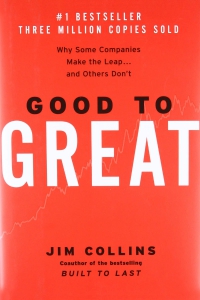
People that never heard me speak or never heard our podcast just went to our website. If I didn’t have that opt-in form to educate them and put them on a nurture sequence, I would have lost $1 million in revenue. It’s the warm leads. It’s the person that came to my site and they were exploring VA and outsourcing companies.
I’ve got the contact form. I got the phone number, but they don’t want to get married yet. They just want to date, “Let me give you a way to start that process and get on that nurture sequence.” Once they’re on that, they might be able to go in and connect with them on LinkedIn. They start seeing our posting on LinkedIn on educational content. They connect with them on Facebook and see content there.
They’re being surrounded by not, “Come buy my stuff,” but “Let me keep you educated about this whole journey. If we’re a good fit, I’m happy to help. If not, let me point you in the right direction.” So much money is lost in the warm leads. I’m encouraging people to be there. Many companies, as you know, have those people that are pounding the phones, they call three times, and they don’t call them back. It’s burned and they never do anything with them.
A lot of things I do philosophically in marketing. What has helped us grow as fast as we’ve been is that we earn the right to stay in people’s inboxes and stay on their nurture cycle. I spoke to an event and they have heard me 18 or 20 months ago, but they get our weekly Addictive Tool Series. That’s our long-term nurture. We send one cool tool a week. It’s not, “Buy from me.” It is, “Here’s a cool tool I found.” This is an automated handwritten letter called, “Thanks, you got to check it out.”
They know that they get it. They get an endorphin hit once a week when they see that come in, and it earns the right. I had somebody the other day that has been on our nurture for eighteen months. He’s like, “Brad, we made an acquisition of this new group. We need some help. I’m finally ready for a VA.” I can’t tell you how many of those come through in the process.
I think that was pure gold. Thank you very much. We’re into the final turn. I can see the checkered flag. We’re going to cross the line here. I put you in a time machine and take you back. You get about 60 seconds to talk to twenty-year-old Brad and tell him something that would have helped you speed along your path. Into the time machine, you go back 60 seconds to share something with twenty-year-old Brad. What is that share?
Get around the community of entrepreneurs much faster. My partner in both of my businesses, we made decisions in a vacuum of the two of us. Both of my first partners were about 15 to 20 years older than me. During my first twenty years of business and entrepreneurship, it was just banging between the two of us. Our management team was trying to make up all the decisions.
I would be a commercial advocate of EO but any organization, whether it’s a Vistage, TAB or whatever it may be. As soon as I got around a community of other business owners and entrepreneurs, I could feel at home. Misery loves company, as well as success loves company. We’ve experienced both of those as we know on EO and other organizations that were a part of. I was around 32, 33 when I started having my grenade cosmetics, as you called them. I got on that path in that community. It gives me energy and thrives in a way.
A lot of entrepreneurs are alone on their island. They’ve got their spouse and a couple of friends from high school that doesn’t have the same type of career path that they do. They’re banging around and trying to figure things out. It’s the jolt that you need and encouragement to get you through to the other side, the education, the experience, and the relationships. I would have done that sooner than later. That’s the obvious choice when it comes to the organization you and I were both involved with. That has been the leading indicator, and the lag has been so much if I had done that earlier on.
How would someone in the audience reach out to you or your company? What’s the easiest way to do that?
OutsourceAccess.com, you can check out our website there. As you can imagine, I have some videos if you go on there. It’s one of the best things I’ve ever done for our process. If you could go in there and click on Process, you go to a video where I take you behind the scenes and show you the whole world of outsourcing and VAs.
BradStevensTraining.com is our website for speaking. If you get part of a business organization or trade association, I do a ton of speaking and workshops on this. AutomateDelegate.com is our podcast. I would love to have you visit there and do 25 to 30-minute episodes, interviewing people about how they’re automating and delegating in their life, and doing things more efficiently. What you should not be doing in life, business and relationships is my tag there.
There’s an email address we created. It is called Tools@OutsourceAccess.com. If you’re reading this, you got your phone, pop it up, and you send an email to Tools@OutsourceAccess.com. In the subject line put PROVEN, so we know it came from The Proven Entrepreneur. Shoot that out. As you can imagine, I add some VAs that collect that. We’ll shoot you a list of a bunch of automation tools, recordings of presentations that I’ve done, templates, and Jim Collins curriculum. A lot of things that I’ve collected that I share with people that hopefully, you’ll find valuable going forward. Those are a couple of channels there.
Thank you very much. It’s a pleasure to have you on the show. I’m grateful to you. See you next time.
Important Links
- Brad Stevens
- 4-Hours Workweek
- E-Myth
- 21 Repeatable Laws Leadership
- Entrepreneurs Organization
- Good to Great
- JimCollins.com
- Concepts
- Automate & Delegate
- LinkedIn – Outsource Access
- Facebook – Outsource Access
- Addictive Tool Series
- Process
- BradStevensTraining.com
- Tools@OutsourceAccess.com
About Brad Stevens
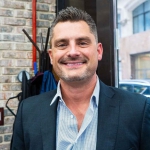 Brad Stevens is a lifetime entrepreneur and is currently the Founder/CEO of Outsource Access, a virtual services firm he has grown to nearly 400 employees in just over 2 years. He also co-foundd a company that creates 1-on-1 meetings at scale for member organizations and conferences to drive member and sponsor value with 14 organizations and 4,000 connections made globallly. His prior company was in the dental/beauty industry with 8,000 accounts in 18 countries. Before that he built a nutritional products company and a business that helped senior citizens afford medications. Most recently he launched a podcast – Automate & Delegate: What Should You Not Be Doing.
Brad Stevens is a lifetime entrepreneur and is currently the Founder/CEO of Outsource Access, a virtual services firm he has grown to nearly 400 employees in just over 2 years. He also co-foundd a company that creates 1-on-1 meetings at scale for member organizations and conferences to drive member and sponsor value with 14 organizations and 4,000 connections made globallly. His prior company was in the dental/beauty industry with 8,000 accounts in 18 countries. Before that he built a nutritional products company and a business that helped senior citizens afford medications. Most recently he launched a podcast – Automate & Delegate: What Should You Not Be Doing.
Brad is also a 9-year Member of the Global Entrepreneurs’ Organization currently serving as the EO US East Regional Director for Member Engagement across 22 chapters and nearly 2000 members. He has also served as President for the EO Atlanta Chapter.
Brad is also passionate about giving back and launched two charitable programs including direct work with the United Nations Sustainable Development Goals. He is an author and global speaker for hundreds of organizations on agility, scale and automation and has advised business and civic leaders including Martin Luther King III. Brad graduated from the Wharton Business School with Finance and Marketing Concentrations and recently completed a Harvard Business School Executive Education Program on Inspiring Entrepreneurial Strategy. He lives in Atlanta, GA with his wife Cindy, a passionate educator for 13 years, and their two children that keep them quite busy, Ella and Brayden.
For information on how to work with Don visit Work With Don Williams
You can also reach out to Don Williams at https://donwilliamsglobal.com
Please join Don and his businesses in support of St. Jude’s Children Research Hospital in its Mission to cure Childhood Cancers. You can donate to St. Jude at stjude.org/donate
